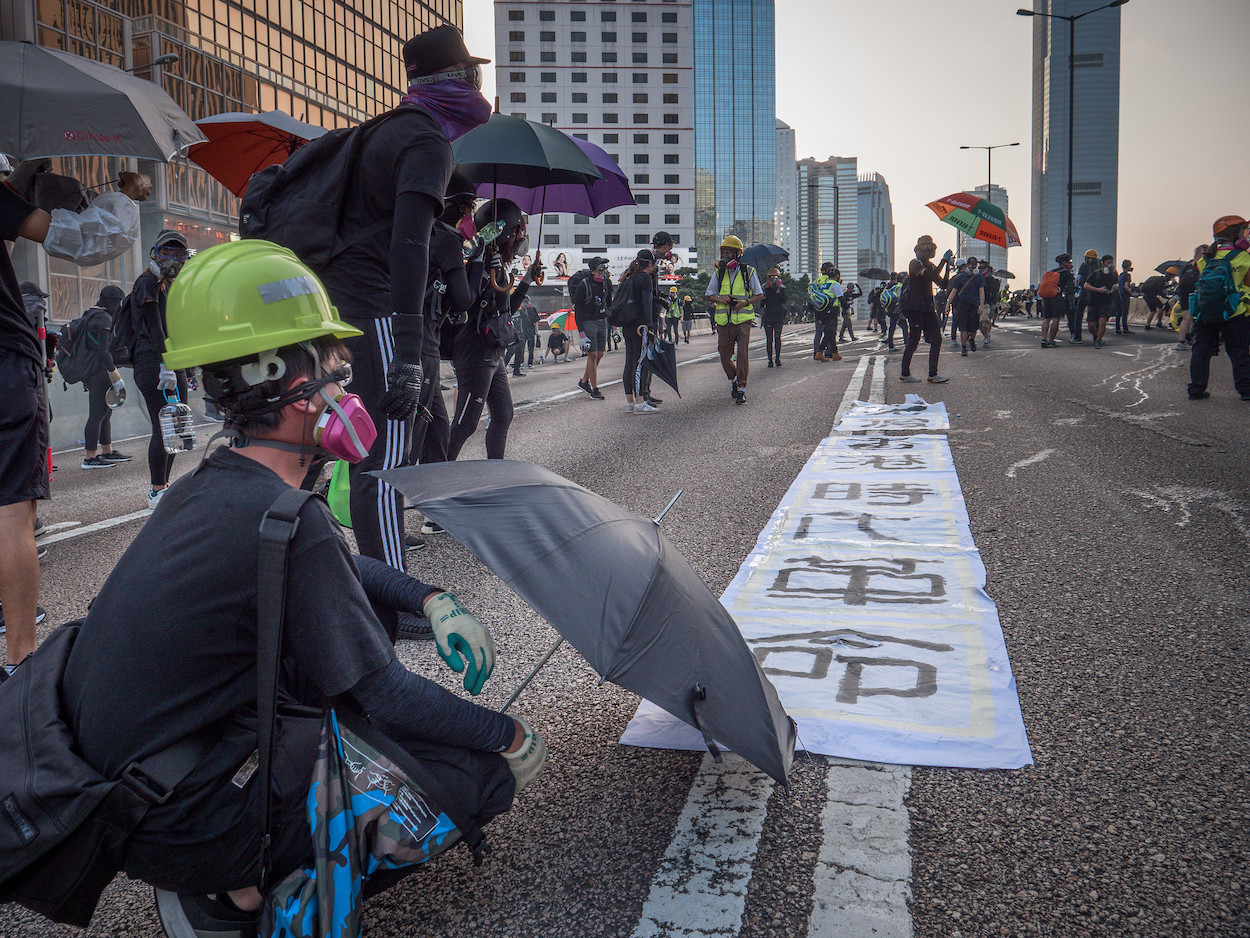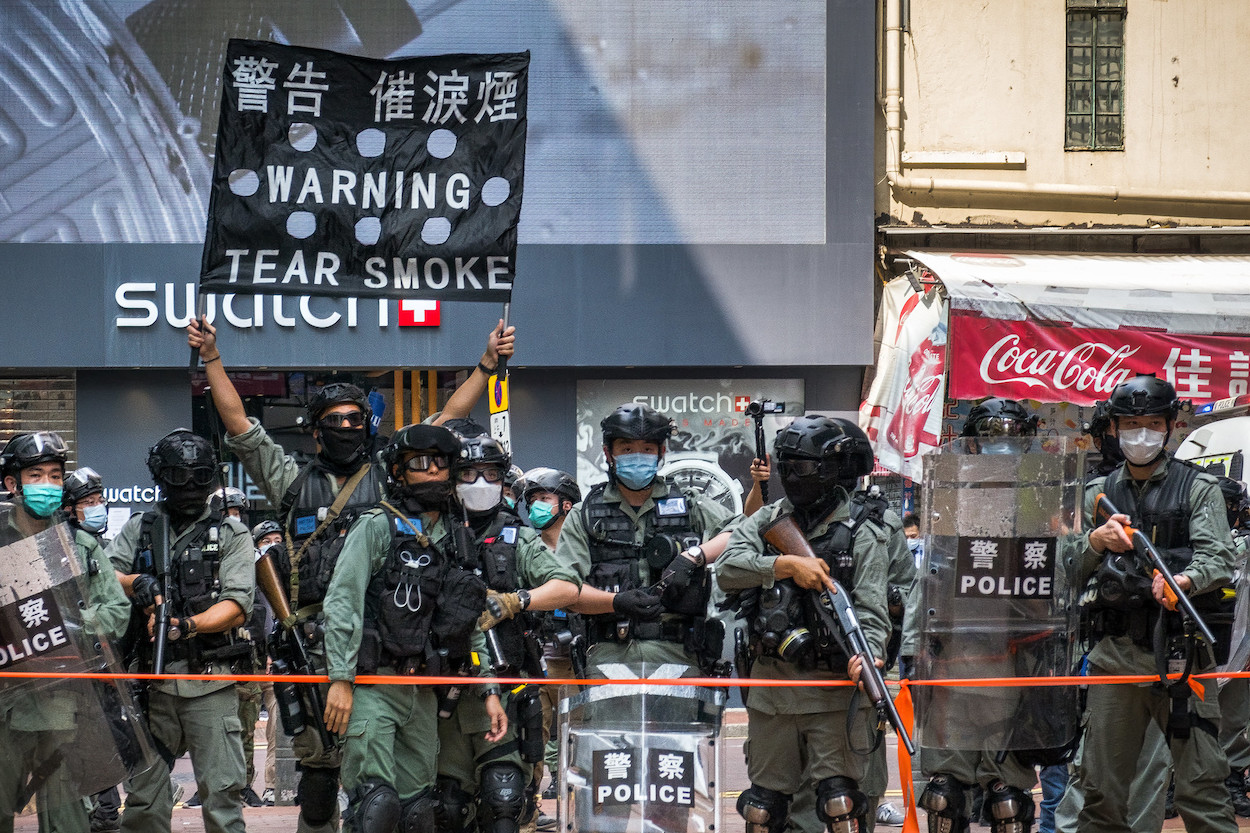by Brian Hioe
語言:
English
Photo Credit: Studio Incendo/Flickr/CC
POLITICAL FREEDOMS continue to be under assault in Hong Kong, with arrests, detentions, and worsening conditions for remaining civil society groups.
Amnesty International announced that it would be withdrawing from Hong Kong earlier this week, after forty years of operating in Hong Kong. This follows on the heels of Human Rights Watch, another major international human rights NGO, withdrawing from Hong Kong. In public statements, Amnesty International stated that it was no longer possible to carry out its work in Hong Kong after the passage of the National Security Law in June 2020 and so it would be closing its offices.
In particular, given Amnesty International’s wide reach as a human rights NGO, its departure from Hong Kong means that Hong Kong is very likely to no longer play the role of a regional hub for international NGOs. This was a role that Hong Kong had long played, given its strong international links, status as a global finance hub, and proximity to China. This, effectively, was the same reason that Hong Kong has historically served as a global media hub for the Asia Pacific.
 Photo credit: Studio Incendo/Flickr/CC
Photo credit: Studio Incendo/Flickr/CC
Indeed, foreign correspondents have also come under pressure in Hong Kong. This can be seen in Victor Mallet, Asia news editor of the Financial Times, not having his working visa renewed and being effectively expelled from Hong Kong in retaliation for an event organized by Mallet in his capacity as vice-president of the Hong Kong Foreign Correspondents’ Club during which he invited Andy Chan of the Hong Kong National Party to speak. Mallet was later denied entrance to Hong Kong as a visitor.
But more generally, media organizations are being pressured in Hong Kong. The Hong Kong Journalists Association has vowed to hold the line, even when ordered to run over members’ rolls and other information by authorities. Organizations ranging from the Hong Kong Confederation of Trade Unions to the Hong Kong Alliance in Support of Patriotic Democratic Movements of China, which organizes the annual Tiananmen Square Massacre commemorations in Hong Kong, and Civil Human Rights Front, which organized the largest of the protest marches that took in Hong Kong during the peak of protests in 2019, have dissolved.
Members of dissolved organizations have been jailed. Two of five leaders of the Hong Kong Alliance currently jailed on charges related to refusing to provide sensitive information to the Hong Kong government have refused bail in the last week. This is because, if released on bail, they would not be allowed to engage in any speech acts viewed as “endangering national security.” But, as has been criticized of the National Security Law, its definition of what constitutes a threat to national security is overly broad and vague, allowing for its use against anyone that the government deems a threat.
The expulsion of pro-democracy politicians from public offices continues, too, with sixteen more pro-democracy district councilors expelled from office earlier this month. Only around 60 pro-democracy district councilors remain, with 388 out of 479 district councilors originally viewed as pro-democracy. Any remaining pro-democracy district councilors left in office will probably be outgunned by members of the pro-Beijing camp. Or they, too, will be removed from office or arrested.
 Photo credit: Studio Incendo/Flickr/CC
Photo credit: Studio Incendo/Flickr/CC
In the same week, protester Ma Chun-man, nicknamed “Captain America 2.0”, became the second person to be convicted under the national security law. Ma’s conviction was under the claim that his actions and speech sought to intentionally incite secession, having already been imprisoned for ten months. Ma’s defense argued that his comments were “immature”, but that he did not aim to incite secession, a charge which he could face up to seven years in jail. Tong Ying-kit, another activist who was the first to be convicted under the national security law, was jailed for nine years on charges related to waving a flag that read “Liberate Hong Kong, revolution of our times” while driving his motorcycle into a group of police officers.
The situation remains dire in Hong Kong, then. There have been some efforts by civil society groups to fight back, such as lawyers organizing a database of rulings by judges on protest-related cases, with the hope that this can maintain some vestige of rule of law. Nevertheless, the actions of the Hong Kong government are likely to continue.

